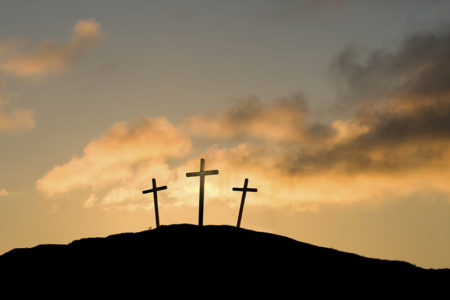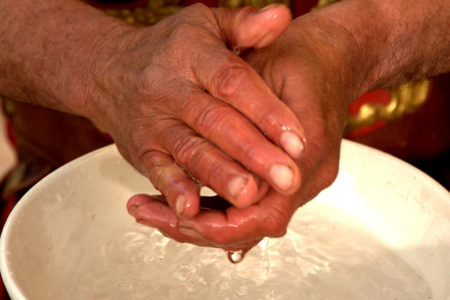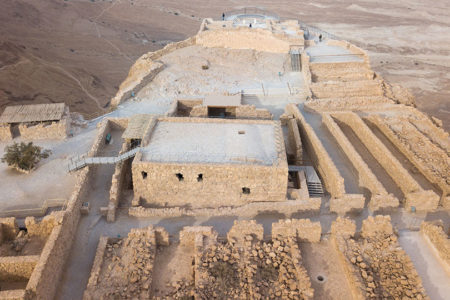Getting Our Attention: Is It Too Late?
There is a threadbare story that I tired of hearing years ago. It had too much of the smell of musty homespun about it to appeal to me and many of my generation, but it made a point.
The story had to do with a crusty farmer and his mule. A friend observed that before they left for the fields for a day of plowing or cultivating, the farmer picked up a length of wooden 2×4 and delivered a sharp blow to the mule’s head, momentarily knocking the animal to the ground in a quivering heap.
“Why do you do that?” the farmer’s neighbor asked. “What did the mule do wrong?”
“Nothing yet,” the farmer replied. “I just do that to get his attention.”
It’s an old joke—and a bad one, at that—but one wonders just what must be done to get our collective attention about what is taking place in the Middle East. Quite frankly, I question now whether the 2×4 treatment will be enough.
Western diplomats continue to give the impression of playing it straight, while Yasser Arafat and leaders of his Palestinian Authority glibly pile up a lofty litany of lies, half-truths, and malevolent declarations that are simply beyond belief. In spite of his record of noncompliance, less-than-veiled threats to renew violence, and “Blame Israel for everything” tactics, few seem to be paying much attention. Some liberals will, as expected, write off such radical Palestinian antics as the rhetoric of deeply aggrieved but otherwise reasonable men who are simply venting their frustration.
But where are the rest of us—the virtually voiceless and faceless majority who let them get away with it—those of us who believe that tyrants and terrorists usually say what they mean and will, when given an opportunity, do what they promise? These are, after all, people who do not see the world as the rest of us do and who demonstrate it consistently.
Here is a contemporary case in point. I have copy of the Palestinian Authority’s Atlas of the Arab Homeland and the World published in Nablus, Israel. This Atlas (4th Edition for 1998–99) is published for all educational levels. Its version of the political map of the region does not show Israel as a country but, rather, shows it as “Occupied Palestine.” In the listing of “The World: Countries and Capitals,” Israel is not mentioned. Jerusalem is designated as the capital of Palestine.
The October 23, 1998 Wye Memorandum committed all signatories to “take all measures necessary in order to prevent acts of terrorism, crime and hostilities directed against the Israeli side…and to prevent incitement.”
On March 19, 1999, Yasser Arafat—quoted in the Agence France Presse, and on March 20, 1999, in the Jordan Times, speaking to 3,000 Fatah members in Ramallah—made the following statement:
“We carried out the longest Intifada [uprising] in history.” He said, “They [the Israelis] should know that we can start it again if they try to prevent us from exercising our rights….The state will be established with Jerusalem as its capital, whether they like it or not. If they don’t like it, they can drink in the waters of the Dead Sea. We, the Fatah and the PLO are ready to fight a new battle…every single day.”
We have been told, “Those who refuse to learn from history are doomed to repeat its mistakes.” We also are reminded, “The only thing we learn from history is that we never seem to learn from history.”
We are now in the late 90s however—rushing headlong toward a new millennium. I, for one, think the time is ripe for a new go at these somewhat dusty adages. If we are going to learn or not learn from history, it might be a good idea to know something about the history we are preparing to embrace or ignore.
I say this because it seems to me that our collective historical illiteracy is the crux of a great dilemma that may be steering us toward some very ugly options.
A few weeks ago, a well-known talk show host was on the streets in California, asking questions of a number of people aged 20-to-30ish. He asked an elementary school teacher who Betsy Ross was. She didn’t seem to have the foggiest notion. Then she was asked about the identity of former President Gerald Ford’s wife, Betty Ford. Again, she seemed to be thrown into a quandary. “She must be a nurse,” the young teacher replied. “I think she started some kind of a hospital.”
If the questions were a set-up, it was quite amusing. But if, as it appeared, they were not, the exchange was extremely depressing.
In the Editorial of a recent issue of Israel My Glory, I tried to sound a warning. Buttressed by videotaped evidence of what is being taught to innocent Arab boys and girls on official Palestinian television, we attempted to expose our readers to the threat of a possible future flood of terrorist violence. These Palestinian producers of TV for kids were programming children to form the vanguard of a new Intifada—a grave reminder of events in Germany more than fifty years ago and a sobering illustration that we have probably learned little or nothing from history.
I have been informed that after these films—showing young Palestinian children screaming their intentions to board buses, crowded with Jerusalem’s Jews, with bombs strapped to their bodies —were exposed to world view, the program was altered somewhat. The mental images of these children wrapped in lethal explosives ready to reduce themselves and their victims to small strips of raw flesh were more than people in the West could stomach. Thus, the program being aired on official Palestinian TV was changed. Fine. But you can be sure of two things. First, the reason it was changed was because the broadcasters were caught. Exposure of such planned primitive butchery before civilized people in the Western world does not make a compelling case for getting more concessions from your intended victims. Second, the sponsors who sat on stage applauding the children will not stop such dangerous indoctrination. They will simply find another forum through which to continue doing the same thing.
Watching these children doing dress rehearsals for the worst of terrorist monstrosities is sobering beyond anything imaginable. Indeed, when such irrational militancy is coupled with so much historical apathetic illiteracy in Western countries, it confounds reasonable minds. Hitler made no bones about his demonic dream to wipe out Europe’s Jews. And, for far too long, he got away with it. Islamic fanatics are trumpeting a like message—a Jewless, Mideastern, Arab, and Islamic utopia. So far there has been too little said or done about it.
But what, after all, can be done? Where is the attention-getting swat on the head with a 2×4? While our Israeli allies confront terrorism at their doorsteps, we in the West are nearly half a world away. Most effective, in the long haul, is to see that our children get the right information about what all of this means. Here at The Friends of Israel, we have decided to take one significant step.
Several weeks ago, our newest video, “Zvi: The Return,” in which Holocaust survivor Zvi Kalisher revisits the scenes of the Holocaust, was awarded a prestigious Angel Award from Excellence in Media at ceremonies in Hollywood, California. As I viewed the video once again, and remembered the faces of those deluded Arab children, I came to a conclusion. Our children must not be deprived of the knowledge of what unchecked and ignored hatred can do to all of us.
We are, therefore, making a commitment to place “Zvi: The Return” in every Christian school in the United States for viewing by students and faculty. In addition, we will attempt to provide copies for other institutions upon request. In my mind, this can be a project that will constructively influence people as nothing we have done before.
Over the past few years, I have been deeply moved by the number of World War II veterans who have been in contact with me. Often their letters contain stacks of fading photographs taken of the grim scenes from the death camps in Europe, with their small mountains of decaying Jewish bodies. These were the people who were not able to hold on to some semblance of life long enough to see the smiling faces of their rescuers.
The words of the GIs are simple and direct—often bordering on cries of anguish.
“We won’t be here much longer, but the next generation must learn about this. Will you take these pictures and somehow let them know—please?”
This horrible thing cannot be allowed to happen again.
But the question is, “Is it too late?” Only we have the answer to this question.






